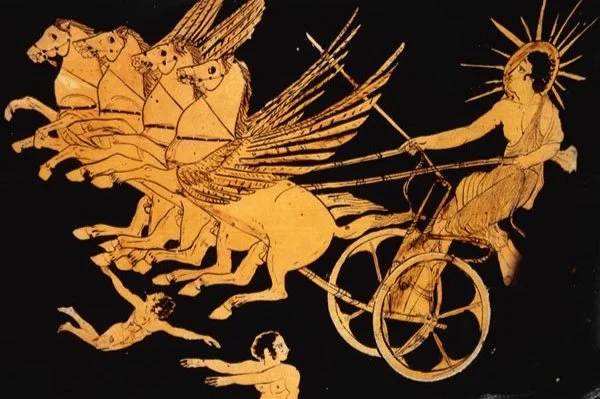Part 1: Hubris & Other Cool Words
The fascination:
Words and languages fascinate me, the way there will always be an infinite amount of singular words and also an infinite amount of ways in which one could string those singular words together to form a sentence with infinite implications…
Then that’s just the English language, imagine the never-ending pool of words and combinations comprising ALL 7,000 + languages in the world.
In another life, I was a linguist, for sure.
One of the newer words added to my lexicon is the word “hubris”. I had never heard this word spoken before, so when my dad casually threw it in a sentence during a conversation a little while ago, I stopped him for clarification.
I love that a word can be so long-existing yet at the same time so completely new to me. It’s just floating around out there in the vocabulary repository of the world, somewhere undiscovered by my brain, and then at some very random moment, whether through reading or conversation, it suddenly unveils itself and crosses into my awareness. What a concept.
I realize many people probably already know the word ‘hubris’. Maybe you’re cool and are already familiar with it. But if you are not familiar, here is a definition (and a brief, cool history, if you’re interested):
Hubris:
A noun referring to the quality of extreme or excessive pride or dangerous overconfidence, often leading to a fatal downfall. It originates from the Ancient Greek word “hybris”, directly translated as “excess”, and can therefore refer to an excess of self-indulgent attitudes, such as pride or confidence.
Hubris is also deeply rooted in Greek mythology and was used as a frequent theme in tragedies and literature to depict a fatal flaw of the tragic hero that led them to a downfall.
According to the context of mythology, if someone is said to have ‘hubris’, then the consequence of their inflated self-importance could cause them to overstep boundaries, and in turn, ‘provoke the wrath of the gods’.
Classic depiction of “hubris” in Greek Mythology: The story of Phaethon, son of the god of the sun, Helios. Driven by pride and a need to prove himself, he ignorantly drove the sun chariot and almost scolded part of the earth when doing so, almost causing total destruction. To save the earth, another god, Zeus, shot him down with a thunderbolt.
Some say the part of the earth that was scorched by the sun from Phaethon created the deserts of Africa. I like that theory.
The drama! I love it.
It was the day after I returned to the United States after traveling for six months, and my dad and I were indulging in one of our typical conversations where we seek to solve all of the world’s problems. We usually don’t succeed.
However, these conversations do succeed in spurring ideas and inspiration that I, as an eager student to my dad, my wise teacher, always find immense value in.
When he explained ‘hubris’ to me, I marveled at how relevant and potent a word it seemed to be for the recent state of events in our country, and also just a generally relevant (and fun) word worth the engagement and dissection.
I particularly like this word, as opposed to simply ‘arrogance’ or ‘conceit’, because what sets it apart is that crucial phrase, “often leading to a downfall”.
Even though the word was born in mythology, it still echoes in our modern world as a sort of cautionary tale when considering that our behaviors indeed come with consequences.
When considering that overindulgence or excessiveness can indeed have detrimental effects.
And when considering that the delusion of excess pride or severe entitlement can indeed piss off the gods- imagine!
Other Cool Words:
While on my recent escapades throughout Europe and Africa, I was exposed to such an array of words, phrases, languages, and dialects. I wish I could say that I picked them all up and now am a multilingual genius, but unfortunately, that is not the case.
I did, however, try to learn a few words and phrases in some of these new languages.
I spent some time in the countries of The Gambia and Senegal, whose native language is Wolof. In Wolof, a common reply to a “how are you?” is “jàmm rekk”, which translates directly in English to “Peace only”.
Imagine running through your normal formalities with someone in a quick, habitual greeting, they ask you how you are doing, and your reply is, “Peace only”.
If that isn't the ultimate declaration of chosen contentment for the day, I don't know what is.
Why not be at peace today? Claim that peaceful energy, radiate it onto the world, and allow it to saturate your entire essence.
In the Arabic language, and also typically used by Muslims worldwide, the usual greeting is “salamun alaykum,” which translates in English to “Peace be upon you”.
Another beautiful, endearing phrase that, when voiced to you from somebody else, feels more like a blessing bestowed rather than a banal “hello”.
Such an easy gesture, yet every time I breathed those words out of my mouth, it was as if they carried with them a true beam of peace, diffusing the space between me and that other person, one of deep respect and acknowledgement.
I think we should all strive to embody the spirit behind “salamun alaykum” and “jàmm rekk”, and run far, far away to avoid the meaning behind “hubris”.

